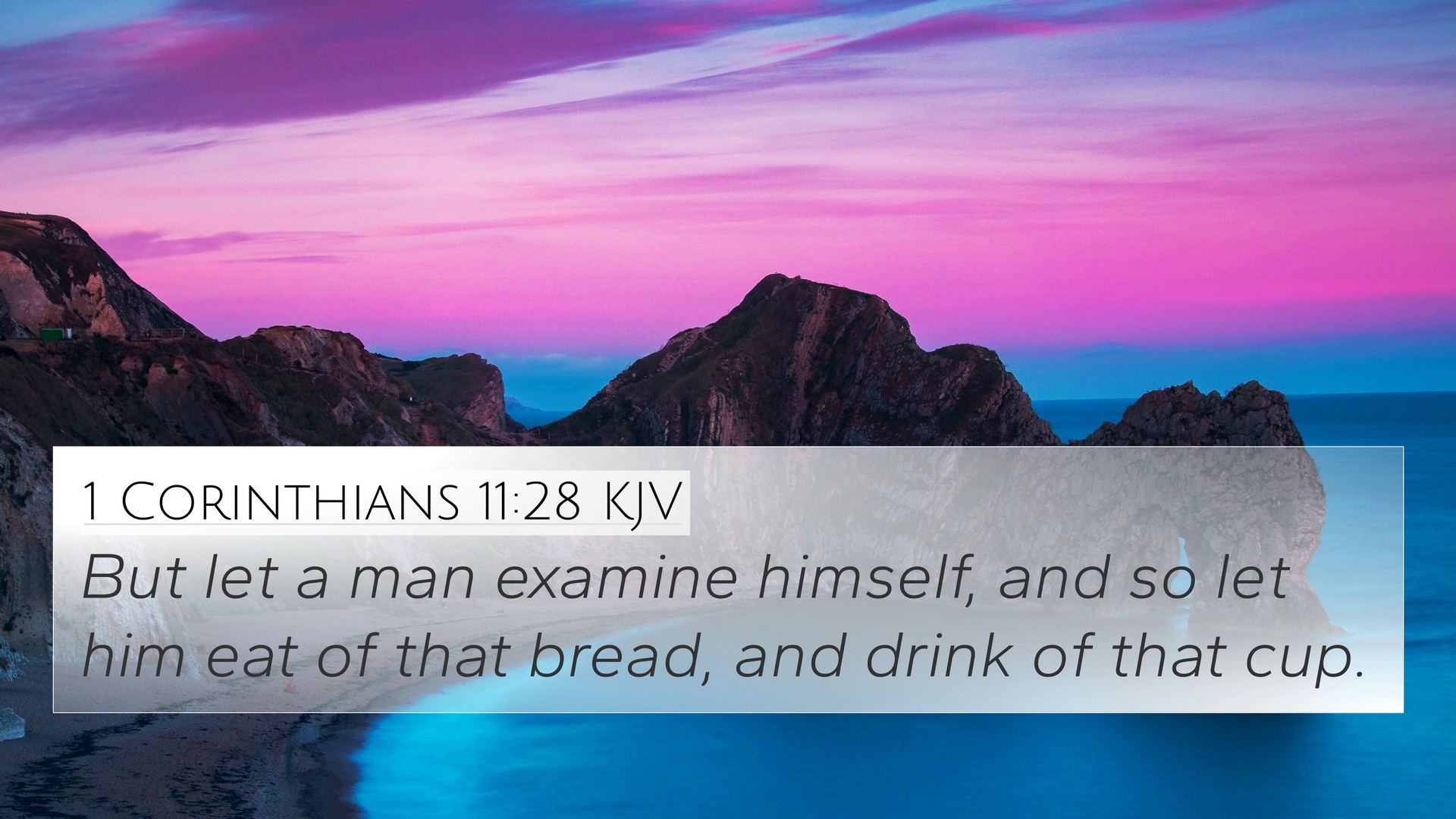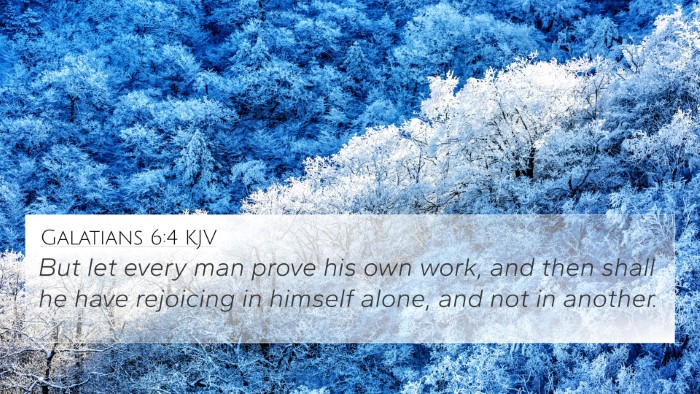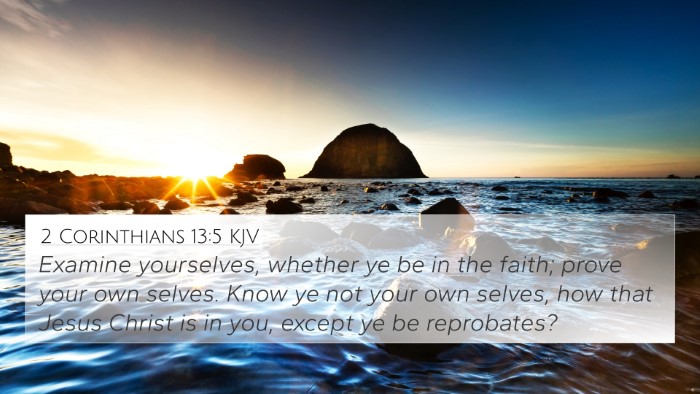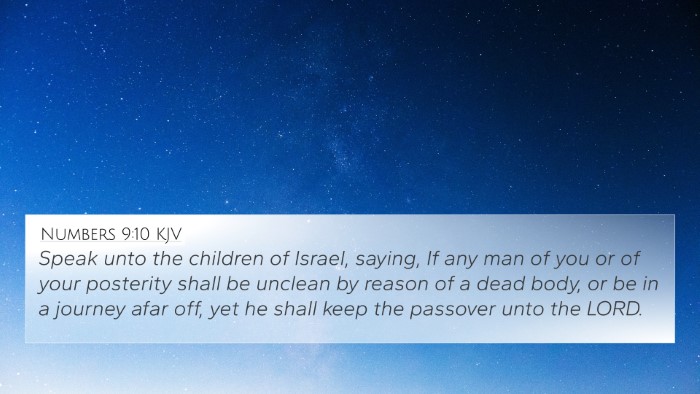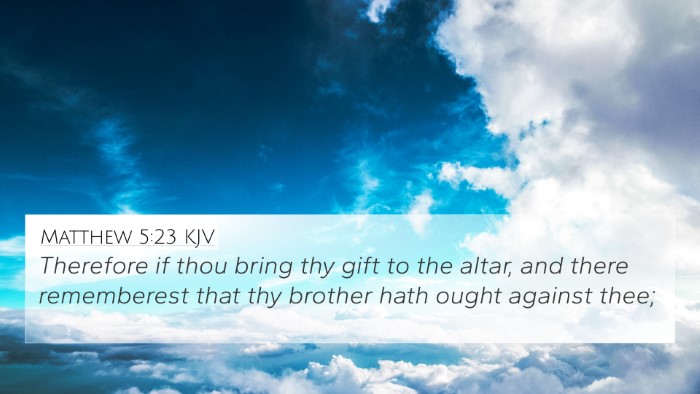Understanding 1 Corinthians 11:28
1 Corinthians 11:28 states: "But let a man examine himself, and so let him eat of that bread, and drink of that cup." This verse is often examined in the context of communion, calling believers to self-reflection before participating in the Lord's Supper.
Verse Meaning and Interpretation
This verse is pivotal for understanding the proper attitude and preparation required for partaking in communion. Below are insights gathered from various public domain commentaries.
Matthew Henry's Commentary
Matthew Henry emphasizes the importance of self-examination. He notes that the act of examining oneself is a call to introspection regarding one's spiritual state and relationship with God. This examination serves as a means of ensuring that participants are worthy to partake of the sacred elements, signifying a reverent approach to communion.
Albert Barnes' Notes
Albert Barnes elaborates on the phrase "let a man examine himself." He explains that the individual is urged to reflect on his sins, seek repentance, and assess his readiness to receive communion. Barnes stresses that this examination is crucial to avoid partaking of the bread and cup in an unworthy manner, which can lead to spiritual consequences.
Adam Clarke's Commentary
Adam Clarke adds depth by discussing the communal aspect of the Eucharist. He posits that this self-examination is not merely a personal endeavor but should also consider one's relationship with others in the church body. Clarke reinforces the idea that unity and reconciliation within the community are essential for a meaningful participation in communion.
Key Themes Explored
- Self-Examination: A requirement before approaching the Lord's Table.
- Spiritual Readiness: The necessity of being in a right state with God.
- Community Awareness: The importance of relationships within the body of Christ.
- Reverence for Sacred Practice: A reminder not to take communion lightly.
Cross-References to Enhance Understanding
To gain a deeper understanding of 1 Corinthians 11:28, several Bible verses relate closely and enhance its meaning:
- 2 Corinthians 13:5: "Examine yourselves to see whether you are in the faith; test yourselves."
- Matthew 5:23-24: The significance of reconciliation with others before offering gifts to God.
- 1 John 1:9: The promise of forgiveness upon confession of sins.
- Luke 22:19-20: The institution of the Lord's Supper by Christ.
- Romans 12:1: Presenting our bodies as a living sacrifice, holy and acceptable to God.
- Hebrews 4:12: The Word of God as a tool for discernment and self-examination.
- James 1:22: Being doers of the Word, not just hearers.
Practical Application of 1 Corinthians 11:28
Incorporating the principles from 1 Corinthians 11:28 into daily life can involve:
- Regular self-reflection: Setting aside time for personal evaluation of one's spiritual life and conduct.
- Engaging in prayer: Seeking God's guidance and forgiveness regularly.
- Strengthening community bonds: Actively working towards unity within the church.
Conclusion: The Significance of Self-Examination
In summary, 1 Corinthians 11:28 serves as a vital reminder of the importance of self-examination before participating in the Lord's Supper. By integrating the insights from various commentaries alongside relevant cross-references, believers can cultivate a deeper understanding of their faith practices. This verse captivates not only the act of communion but the overall call to live in a manner worthy of Christ’s sacrifice.
SEO Keywords Utilized
The content highlights various aspects of Bible verse cross-references, connections between Bible verses, cross-referencing Bible study, and tools for Bible cross-referencing, which can be beneficial for readers looking to enrich their study of scripture and understand the thematic connections throughout the Bible.
